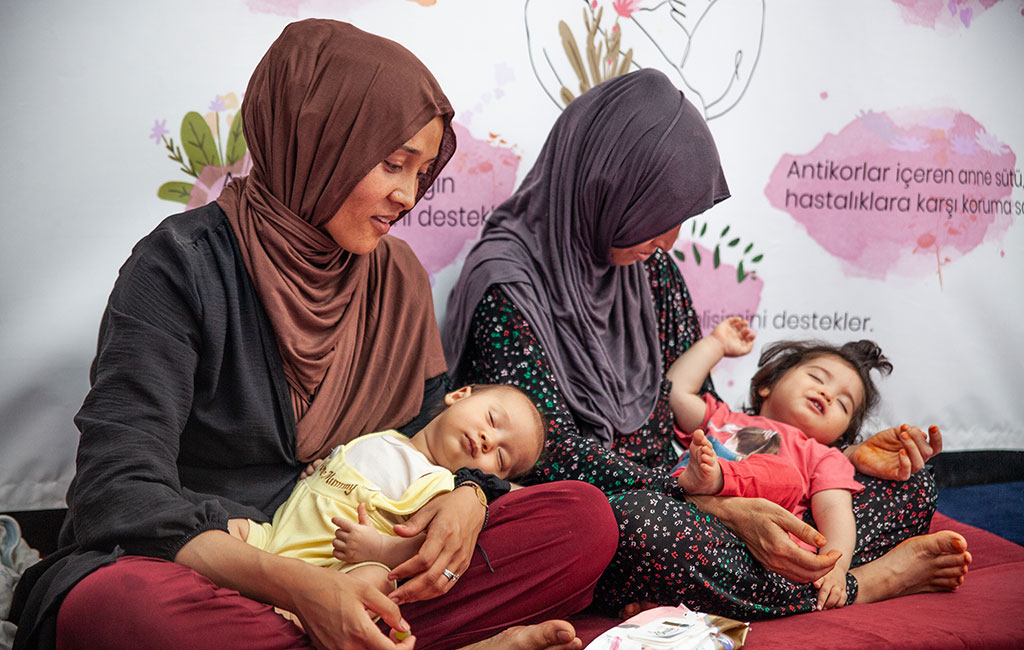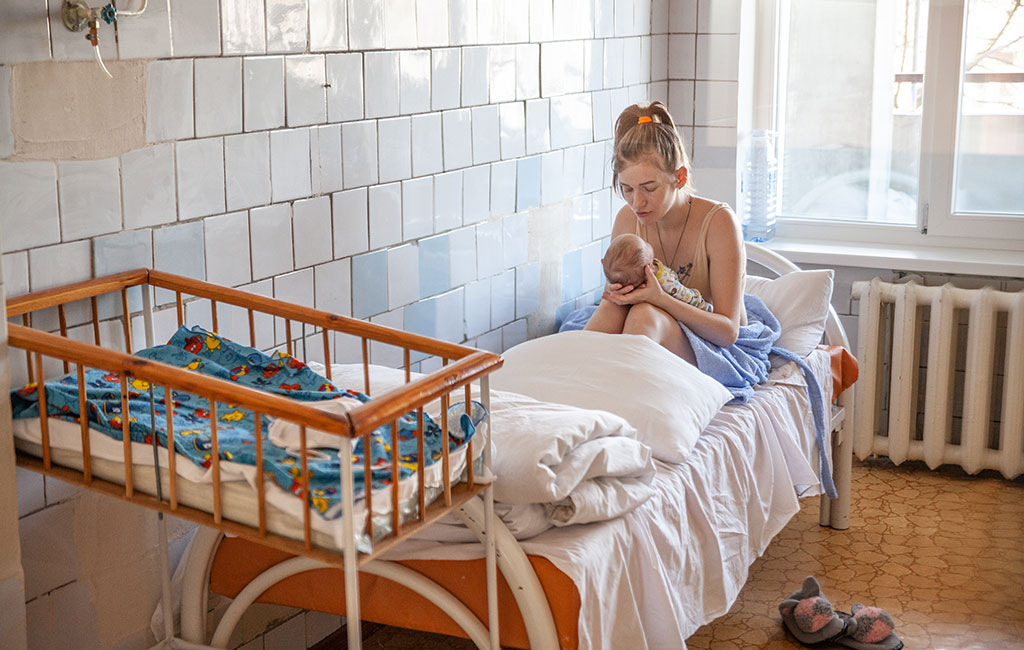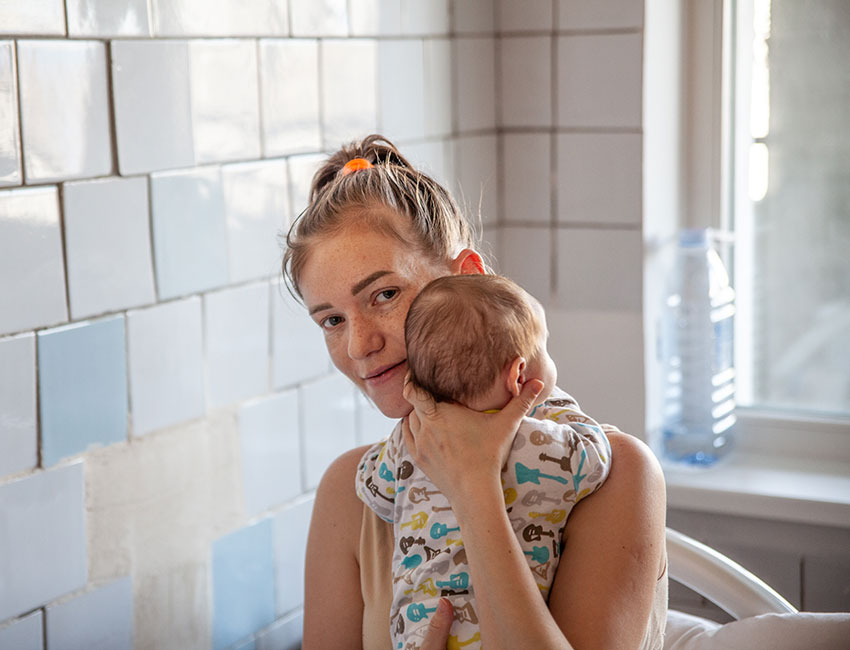The charity has compiled this information at a time when there are increased emergencies in the world, such as climate shocks and conflict. These circumstances can affect not only access to healthcare, but how quickly people can access reliable information as well. Furthermore, 45 per cent of global death amongst children are related to undernutrition and women are disproportionately affected by poor access to healthcare and advice; this highlights the need to tackle breastfeeding misconceptions head-on to improve health outcomes and ultimately save lives.
World Breastfeeding Week is one of the key events in Action Against Hunger’s calendar – it raises awareness of the importance of breastfeeding, destigmatises the activity, and provides helpful advice to pregnant women, in addition to women who have just given birth, on healthy breastfeeding practices. As a leading international hunger charity, the organisation understands that breastmilk is the best way for babies to get the protein, sugar, vitamins and minerals they need for physical and mental development.
The top misconceptions around breastfeeding according to Action Against Hunger are:
1. Malnourished mothers cannot breastfeed
Malnourished mothers can breastfeed. However, they should be provided with extra food and fluids to rebuild the amount of nutrients they have in their system. They should also be encouraged to breastfeed the child very frequently because they need extra-calories. Moderate malnutrition has little or no effect on milk production so the message – particularly in emergency situations – is to feed the mother and let her feed the baby.
2. Stress prevents mothers from producing milk
Stress may temporarily interfere with the flow of milk, which is why it is important to provide a stress-free environment for the mother, but it doesn’t interfere with production of milk. This includes the provision of washbasins, toilets or showers so that there is a high level of hygiene. If these spaces afford privacy to the mother and child, then this can also lead to healthy breastfeeding practices.
3. A pregnant mother cannot continue to breastfeed her older child
A pregnant mother can continue to breastfeed her baby during pregnancy and after the new baby has arrived. Breastfeeding will not damage the developing baby and will benefit the older child.
4. The baby must be hungry if they are crying and/or feeding all the time
Babies cry for a number of reasons – especially in challenging environments. Babies can also feed more often during certain times of the day; this is known as ‘cluster feeding.’ It is important not to rule out other reasons why the baby might be crying. This can include colic, which is when a baby cries for a long period of time, for no obvious reason. It is most common during the first six weeks of a baby’s life.
Alexandra Rutishauser-Perera, Head of Nutrition at Action Against Hunger UK, said: “Breastmilk is not only a safe and nutritious food source for babies, but also acts as a natural vaccine, providing crucial protection against various diseases. It has been shown to support babies’ cognitive development, giving them a vital head start in life.
“Although there are more children under six months of age only being given breastmilk in this crucial period, there is still a long way to go to reach the global target of 70 per cent by 2030. This requires more investment to promote and support breastfeeding, especially in emergency situations which are only increasing in frequency.”
Action Against Hunger creates safe and welcoming spaces for mothers and babies; this can include counselling and establishing support networks. With these in place, many women are able to breastfeed – even in the most difficult circumstances.
A prime example is the devastating earthquakes that struck southern Turkey and northern Syria six months ago, which had a profound impact, killing more than 50,000 people and leaving countless families without shelter, clean water and essential services.
Action Against Hunger and its local partners quickly set up, among others, mother and baby-friendly spaces in displacement camps. These spaces provide privacy, psychological support, counselling and assistance to help mothers successfully breastfeed despite the difficult circumstances they face.
Latife, a mother of three from Uzbekistan, found herself pregnant in a displacement camp in one of Turkey’s most devastated areas after earthquakes severely damaged her home. Living in a tent, she discovered the importance of breastfeeding and its benefits for both her baby and herself through the mother and baby friendly space created by local Action Against Hunger partners. There she found relief, support and the knowledge to breastfeed successfully: “I discovered that I didn’t know how to breastfeed before. By coming here, I learned how important breastmilk is for a baby, and how important it is for me as a mother,” she says.

“Hygiene is the biggest need for the people here. In the camp there are washbasins, toilets or showers, but they are used by everyone and there are many mothers breastfeeding and giving birth. They need more private areas for babies, girls and women,” explains Manolya, one of those affected by the earthquakes who works as a mother and baby counsellor in the camp.
The conflict in Ukraine is another emergency to which Action Against Hunger has responded. In Moldova, a neighbouring country experiencing the consequences of the war, we have been assisting Ukrainian refugees and vulnerable Moldovans since the beginning of the conflict. Erodina, a 25-year-old mother was admitted to hospital with Anastasia, her one-and-a-half-year-old daughter, who suffers from an allergy that makes it difficult for her to breathe.

Erodina receives breastfeeding counselling from our social Mămica Alăptează (“Breastfeeding Mama”), a local project supported by the organisation, which promotes breastfeeding, providing free individual online and face-to-face consultation services, and organising group workshops for pregnant women and mothers.
During her first month of life, Anastasia did not eat enough because her body did not accept food. Thanks to counselling, Erodina learned how to feed Anastasia so that the baby would come to her breasts naturally, and what to do if Anastasia did not eat. They are getting closer to being able to go home.


